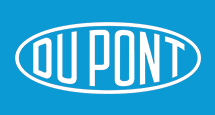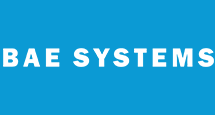Visiongain Publishes Precision Medicine Market Report 2023-2033
29 June 2023
Visiongain has published a new report: Precision Medicine Market Report 2023-2033: Forecasts by Product (Diagnostics (Genetic Tests, Biomarker Based Tests, Other), Therapeutics)), by Application (Oncology, CNS, Immunology, Respiratory, Others), by Technology (Drug Discovery, Bioinformatics, Big Data Analytics, Gene Sequencing, Companion Diagnostics, Other), by End-users (Hospitals, Diagnostic Centres, Research & Academic Institutes, Other) AND Regional and Leading National Market Analysis PLUS Analysis of Leading Companies AND COVID-19 Impact and Recovery Pattern Analysis.
The precision medicine market is valued at US$78.2 billion in 2023 and is projected to grow at a CAGR of 11.0% during the forecast period 2023-2033.
Accelerating Demand for Targeted Therapy
Due to developments in genetic sequencing and anti-genomics, it is now well known that different people and drugs can interact with one other in different ways. A deeper understanding of a person's genetic make-up or biomarkers can help advance the practise of giving the correct medication at the right time, in the right amount, to the right patient. Pharmacological, pharmaceutical, and biopharmaceutical firms are continuously working to integrate patient-selection diagnostic frameworks into the earlier phases of drug development in order to deliver targeted therapies to the appropriate candidate and support the expansion of the precision medicine market. One of the main causes of the expanding use of genomes and proteomics technologies as well as precision medicine is the increased understanding of the advantages of tailored medicine. The growing availability of genetic and molecular diagnostic tests plays a crucial role in enabling the earlier detection of diseases and providing personalized treatments; this can potentially result in substantial savings in treatment costs thereby driving precision market growth.
How has COVID-19 had a Significant Positive Impact on the Precision Medicine Market?
There are a growing number of the promising clinical-stage and marketed therapies in the form of monoclonal antibodies that are repurposed from development in other indications. A better understanding of biological susceptibilities will help provide better leads for targeted therapies. Precision medicine approach is adopted to develop forthcoming treatments, which can be analogous to initiatives in oncology. In addition, the use of this approach may prove to be valuable to assess risks of adversarial treatment effects that would occur in patients with certain genetic variants. As a result, COVID has contributed to raising awareness of the value of precision medicine in the treatment of many disorders. Owing to the lower number of patients undergoing diagnostics and treatment for various diseases due to curbs implemented to prevent the spread of COVID-19, there was a slight decrease in the use of precision medicine in 2021-2022. However, the demand has increased from 2022 owing to the financial stabilization and increased awareness regarding the importance of precision medicine to improve patient outcomes.
How will this Report Benefit you?
Visiongain’s 347-page report provides 149 tables, 220 charts /graphs. Our new study is suitable for anyone requiring commercial, in-depth analyses for the Precision Medicine market, along with detailed segment analysis in the market. Our new study will help you evaluate the overall global and regional market for Precision Medicine. Get financial analysis of the overall market and different segments including product, application, technology, end user, and company size and capture higher market share. We believe that there are strong opportunities in this fast-growing Precision Medicine market. See how to use the existing and upcoming opportunities in this market to gain revenue benefits in the near future. Moreover, the report will help you to improve your strategic decision-making, allowing you to frame growth strategies, reinforce the analysis of other market players, and maximise the productivity of the company.
What are the Current Market Drivers?
Rising Cancer Burden to Spur Industry Growth
In 2040, there will likely be 27.5 million new cases of cancer, according to Cancer Research UK. Two factors that contribute to the increased cancer burden are population growth and ageing. These numbers show how crucial basic and translational cancer research remains. Recent advancements in genomics, proteomics, and other "omics" technology have sped up the creation of tailored medicine. DNA sequencing, for instance, can identify specific cancer mutations in a patient that can be treated with the right medication. Another significant advancement in personalized medicine is the discovery of immunotherapy, which targets cancer cells via the body's immune system. Additionally, in recent years, technological advancements that give rise to medical oncology have coincided with an increase in our understanding of cancer.
Increase in Adoption of Personalized Medicine Over Traditional Practice
Nowadays, hospitals or centralized laboratories conduct diagnostic disease testing. These diagnostic tests are performed using expensive devices which are usually operated by trained individuals. It is incredibly difficult for medical experts to detect diseases in the early stages because these tests are expensive, time-consuming, and invasive. This is a major problem for healthcare systems all over the world. Nevertheless, these developments have led to the creation of quick, accurate, and disease-specific diagnostic instruments that can be used to replace the conventional method of "one-size-fits-all" medicines and assist in determining a specific therapy for patients, which decreases total healthcare costs and enhances public health.
Where are the Market Opportunities?
Increase in Use of AI in Healthcare to Offer Lucrative Growth Prospects
Biotechnology has advanced significantly during the past ten years. Computers are getting smaller and faster, and datasets' heterogeneity and volume are expanding significantly. Precision medicine presents a significant opportunity as a result of these advancements, which are fueling the artificial intelligence engine in medical science. AI-based technological advancements are revolutionising the medical sector by making it easier and less error-prone for healthcare professionals to regularly record clinical data and monitor it. A more precise prediction of the medication response and prognosis of this underlying condition will be possible with the help of AI technology and future developments in pattern recognition and image processing. Therefore, it is projected that the fusion of precision medicine with artificial intelligence (AI) would revolutionise the healthcare sector.
Gene Therapy and Gene Editing Techniques to Offer Lucrative Growth Opportunities for Market Players
Technology is advancing with the development of ever-cheaper genome sequencing, rapidly evolving gene editing technologies like CRISPR, new and more advanced sequencing techniques, and portable sequencing devices. As a result of these breakthroughs, the quantity and variety of genomic data will increase dramatically, adding to the body of knowledge and aiding in the creation of more effective gene treatments. Cell and gene treatments are highly specialised and have the ability to meet unmet medical needs related to treating a variety of ailments.
Competitive Landscape
The major players operating in the precision medicine market are Pfizer Inc., Qiagen, Quest Diagnostics Incorporated, Illumina, Inc., Agilent Technologies Inc., Novartis AG, bioMérieux SA, Abbott, F Hoffmann-La F. Hoffmann-La Roche Ltd AG, Lilly, GSK plc, AstraZeneca, Thermo Fisher Scientific Inc., Myriad Genetics Inc., Bristol-Myers Squibb Company, Danaher, Laboratory Corporation of America Holdings, GE HealthCare, Teva Pharmaceutical Industries Ltd., Abnova Corporation, NanoString Technologies, Inc., Bayer AG, Biogen, and Johnson & Johnson Services, Inc. The key competitors in this market have employed a variety of strategies, including mergers and acquisitions, investments in R&D, partnerships, collaborations, regional company expansion, and new product launches.
Recent Developments
• On 4th April 2023, Pfizer received sNDA from US FDA for BRAFTOVI (encorafenib) + MEKTOVI (binimetinib) for patients with metastatic NSCLC with a BRAF V600E mutation.
• On 1st March 2023, QIAGEN and SOPHiA GENETICS collaborated to integrate the SOPHiA DDMTM digital analytics platform with its QIAseq reagent technology for NGS.
Notes for Editors
If you are interested in a more detailed overview of this report, please send an e-mail to contactus@visiongain.com or call +44 (0) 207 336 6100.
About Visiongain
Visiongain is one of the fastest-growing and most innovative independent media companies in Europe. Based in London, UK, Visiongain produces a host of business-to-business reports focusing on the automotive, aviation, chemicals, cyber, defence, energy, food & drink, materials, packaging, pharmaceutical and utilities sectors.
Visiongain publishes reports produced by analysts who are qualified experts in their field. Visiongain has firmly established itself as the first port of call for the business professional who needs independent, high-quality, original material to rely and depend on.
Recent News
Visiongain Publishes Drug Delivery Technologies Market Report 2024-2034
The global Drug Delivery Technologies market is estimated at US$1,729.6 billion in 2024 and is projected to grow at a CAGR of 5.5% during the forecast period 2024-2034.
23 April 2024
Read
Visiongain Publishes Cell Therapy Technologies Market Report 2024-2034
The cell therapy technologies market is estimated at US$7,041.3 million in 2024 and is projected to grow at a CAGR of 10.7% during the forecast period 2024-2034.
18 April 2024
Read
Visiongain Publishes Automation in Biopharma Industry Market Report 2024-2034
The global Automation in Biopharma Industry market is estimated at US$1,954.3 million in 2024 and is projected to grow at a CAGR of 7% during the forecast period 2024-2034.
17 April 2024
Read
Visiongain Publishes Anti-obesity Drugs Market Report 2024-2034
The global Anti-obesity Drugs market is estimated at US$11,540.2 million in 2024 and is expected to register a CAGR of 21.2% from 2024 to 2034.
















